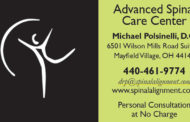By Jordan Brown
As human beings, our first sense, the one that from the beginning allows us to perceive and explore our world, is touch.
Skin, our largest organ, can be viewed as an extension of the brain and nervous system externally. So fundamental to our being is this organ that we literally cannot survive without the functions it performs.
Research indicates that touch in the form of massage promotes growth, diminishes pain (both physical and emotional), decreases autoimmune problems (for example, by lowering glucose levels in diabetes), enhances immune function (e.g., increased natural killer cells in HIV and cancer), and enhances alertness and performance.
Many of these effects appear to be brought about by reducing stress hormones in the body.
Excessive stress overloads our system causing us to lose our ability to relax or rest, increases irritability and anxiety, and can impede our ability to perform tasks well. It can cause us to become disconnected from the people in our lives and from ourselves, making us feel “alone.”
Studies indicate that the negative effects of stress can be reduced or reversed by massage and other positive touch reinforcement. Think of what it means to you when you are exhausted or upset and a friend enfolds you in a loving, understanding hug. It may not fix anything, but suddenly you begin to know that there might be a way through it all.
Massage takes that reassuring, supportive contact to another level, reminds us that we are all just human, and allows us to rest peacefully in the present moment.
“To be able to feel the lightest touch really is a gift.” ―Christopher Reeve
























